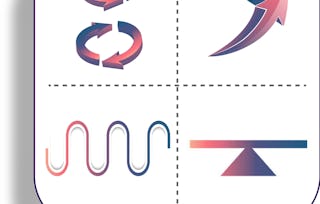This Massive Open Online Course (MOOC) will offer the participants an introduction into the most important classical sociological readings between the 18th and 20th century. Highly influential social science scholars, such as Karl Marx, Max Weber and Emile Durkheim, will be discussed during 8 sessions. Combined with small tests, based on the video’s and recommended readings, the participants will be encouraged to dive deeply into the complex texts and get familiar with classical sociological concepts that are still very relevant today.

Classical Sociological Theory
Seize the savings! Get 40% off 3 months of Coursera Plus and full access to thousands of courses.

Classical Sociological Theory


Instructors: Bart van Heerikhuizen
134,560 already enrolled
Included with
3,054 reviews
Details to know

Add to your LinkedIn profile
9 assignments
See how employees at top companies are mastering in-demand skills

There are 9 modules in this course
Instructors


Offered by
Explore more from Governance and Society
 Status: Preview
Status: PreviewErasmus University Rotterdam
 Status: Preview
Status: PreviewThe Hong Kong University of Science and Technology
 Status: Preview
Status: PreviewThe Hong Kong University of Science and Technology
 Status: Preview
Status: PreviewUniversità di Napoli Federico II
Why people choose Coursera for their career

Felipe M.

Jennifer J.

Larry W.

Chaitanya A.
Learner reviews
- 5 stars
87.98%
- 4 stars
10.37%
- 3 stars
1.14%
- 2 stars
0.26%
- 1 star
0.22%
Showing 3 of 3054
Reviewed on Mar 15, 2021
A good lecturer method
Reviewed on Jul 10, 2021
The course was great. The professor was very excited about the thing he was teaching and that makes me more interested in the lecture. got a great insight about the classical sociology.
Reviewed on Jan 6, 2019
Simple,neat and interesting way of explaining the content. Didn't get bored. Good refreshment if you already know the stuff and good introduction if you are new to sociology. Professor is really nice.

Open new doors with Coursera Plus
Unlimited access to 10,000+ world-class courses, hands-on projects, and job-ready certificate programs - all included in your subscription
Advance your career with an online degree
Earn a degree from world-class universities - 100% online
Join over 3,400 global companies that choose Coursera for Business
Upskill your employees to excel in the digital economy

